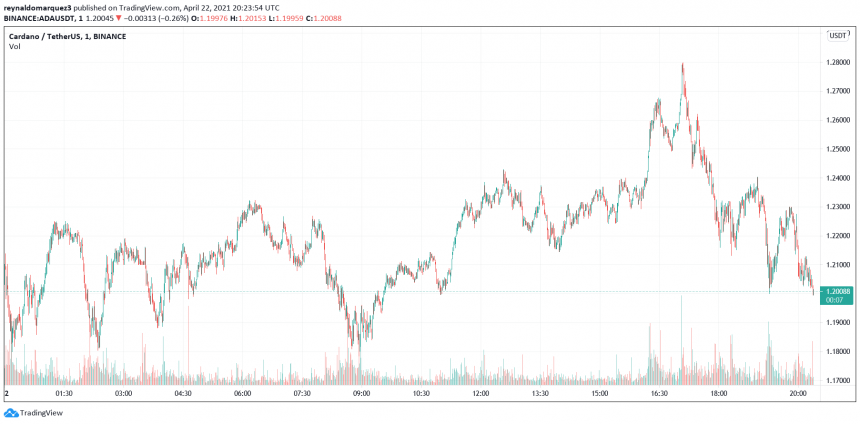This Is How Cardano’s First DEX Will Try To Disrupt DeFi

As Hard Fork Combinator (HFC) “Alonzo” approaches, more DeFi projects are emerging for Cardano. A few days ago, Input-Output Global (IOG) Marketing and Communications Director, Tim Harrison, said there is a “huge” interest from developers towards the platform and its smart contract capabilities.
In that sense, a team of developers led by Ryan Morrison from Quant Digital launch Cardax. A project conceived to be Cardano’s first decentralized exchange. According to an official post, the project is seeking $50,000 to finance the development of Cardax. The proposal has been made via Cardano’s Project Catalyst Fund 4.
Morrison is a stake pool operator on this network with a background in marketing. His team is formed by “crypto enthusiasts” with experience working on projects like Celsius, Open Ocean, and Bitcoin EU, per the official post. They have set out to build a DEX with the following characteristics:
Cardax is a decentralized exchange that will be powered by the Extended Automated Market Maker (EAMM) protocol. It aims to provide liquidity to projects that issue native tokens on Cardano. (…) which brought native tokens and multi-asset support to Cardano, there is an increased need to develop a native exchange.
Cardano’s First DEX Roadmap And Features
The team behind Cardax seeks to meet some of the “challenges and gaps” for Cardano and its ecosystem. In that way, they also seek to increase the platform’s corporate use cases and increase adoption in the DeFi sector.
The project will develop 7 key features: support for any Cardano native token, introduced with the previous HFC events, Allegra and Mary; give liquidity providers the capacity to received fees collected on the DEX; leverage EAMM protocol for liquidity-sensitive automated pricing; the ability to trade with ADA and other native tokens via Yoroi wallet; single transaction trading, and single transaction transfers.
The project will have 6 phases of development. These will be comprised of the creation of the user interface, user experience, the system logic, and “must-have features”, to security, backend, protocol, and a final phase for testing and development. The teams added:
The requested budget in Fund 4 ($50,000) will cover the implementation costs of Phase 1 of the project. As outlined above, this phase will focus on the system architecture and UI/UX of Cardax.
Unlike centralized exchanges and its future competition in the DeFi sector, Cardax will seek to leverage a model with an order book and an automated market maker (AMM). Users will be able to benefit from the dual model. The DEX will allow them to be market makers with minimum slippage and risk of impermanent loss. Cardax team said:
With the increasing adoption of Cardano and ongoing initiatives to support DeFi, a Cardano-based DEX will serve as an essential and powerful trading venue in the ecosystem.
ADA is trading at $1,21 with side movement in the hourly chart, and a downtrend on higher timeframes following the general sentiment in the crypto market.
